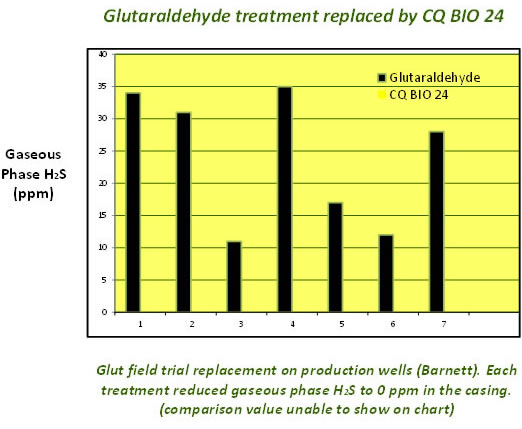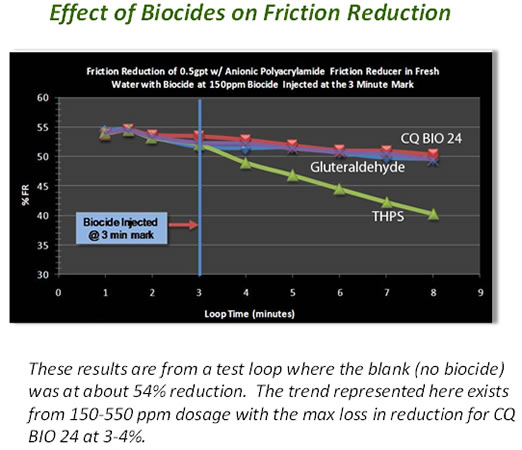SERVICES |
SYSTEMS & PRODUCTS ViChem MHA Drilling Fluid System
|
|
QUICK LINKS |


 |
800-895-8353 (Toll Free) |
 |
|
The presence of sulfate reducing bacteria (SRB) is becoming more and more of a problem in shale drilling. In addition to posing a serious safety hazard, they are also the cause of significant drillstring and casing damage. They can remain in the background in small numbers waiting for the right conditions and then suddenly multiply rapidly to create a population explosion. They can also move from one location to another via contaminated tanks, used muds and equipment. Their presence may go undetected in relatively high pH systems as, at these high pH values, the product of the SRB’s eating habits are sulfide ions rather than hydrogen sulfide. If this sulfide-laden fluid sees a pH decrease, microscopic bubbles of hydrogen sulfide gas can instantly take over a mud system or workover fluid causing all of the associated troubles such as breathing issues and pressure control problems. The resulting foams that are created are very tough to break with standard defoamers. The best solution is to include CQ Bio-24 Biocide as part of the fluid system at a 350 – 500 ppm level. It is long lasting (most other biocides are short term fixes) and it begins to kill within 24 hours. A little CQ Bio-24 Biocide goes a long way to prevent a serious potential problem.

Results Summary for CQ Bio-24 Biocide |
||
| Glutaraldehyde | THPS | CQ Bio-24 Biocide |
| Cross linking of Polyacrylamides, which could create formation plugging | Destroys Performance of Synthetic Friction Reducers | Boosts Performance of Cationic and Anionic Friction Reducers |
| Performance is Reduced by Sour systems (increased H2S) | Poor control over H2S for extended periods of time | In field evaluations CQ BIO-24 Biocide controlled and eliminated H2S from over four to six months |
| Minimal affect on Guar Viscosity | Significant Adverse affect on Guar Viscosity (All Versions) | Minimal affect on Guar Viscosity |
| Glutaraldehyde known to kill performance of Oxygen Scavengers | THPS will hinder performance of Oxygen Scavengers as well as Glutaraldehyde | No known interferences with Oxygen Scavengers or Corrosion Inhibitors |
| Potential Safety and Environmental handling concerns | Black Listed in Norway (R61) Chemical | Excellent Eco/Tox Profile |

SERVICES |
SYSTEMS & PRODUCTS ViChem MHA Drilling Fluid System
|
|
QUICK LINKS |